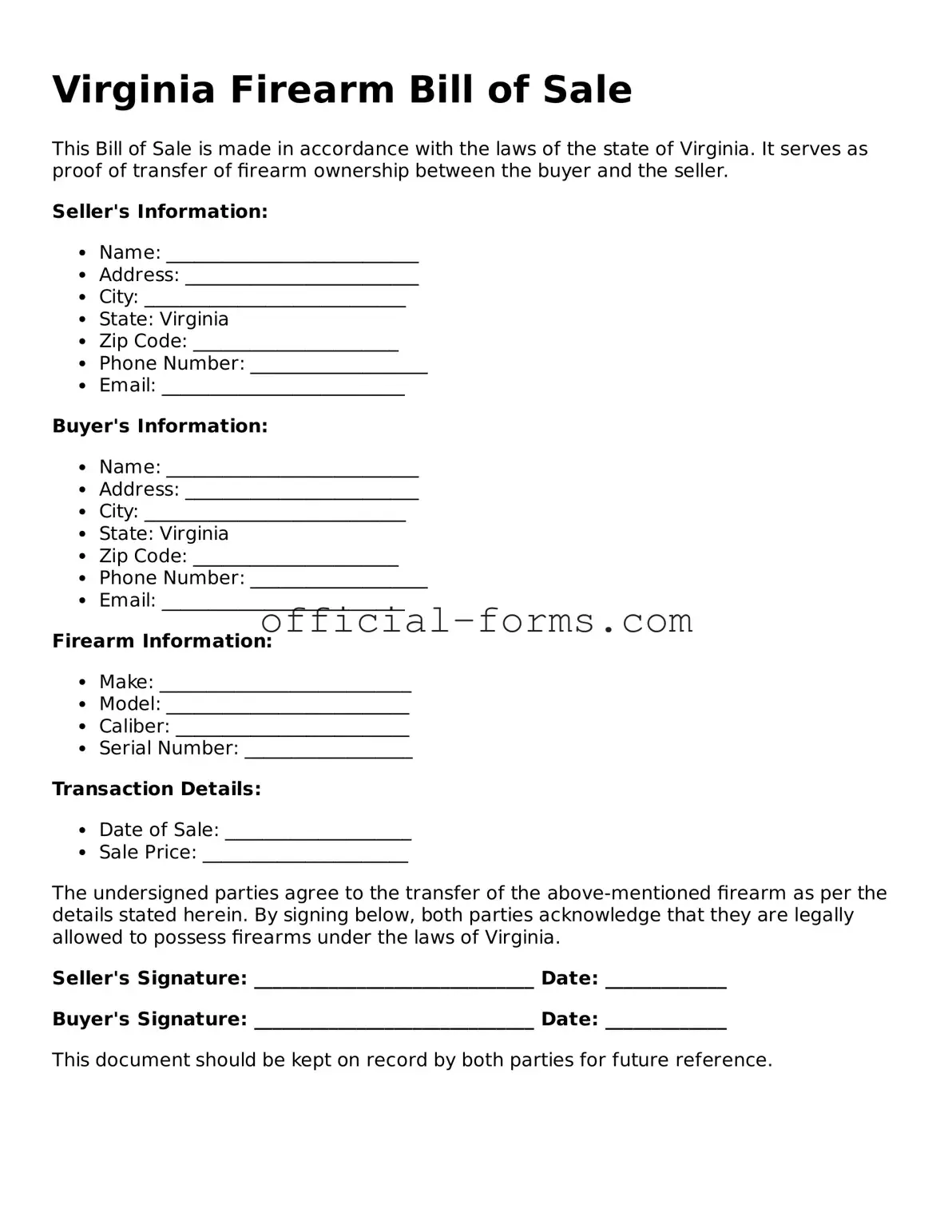When completing the Virginia Firearm Bill of Sale form, individuals often overlook crucial details that can lead to complications. One common mistake is failing to provide accurate personal information. This includes the buyer's and seller's names, addresses, and contact numbers. Inaccurate information can cause delays in processing and may even invalidate the transaction.
Another frequent error is neglecting to include the firearm's specific details. The make, model, caliber, and serial number must be clearly documented. Omitting any of these details can create confusion and may raise questions about the firearm's legality.
People sometimes rush through the form without reviewing it thoroughly. Skipping this step can result in missing signatures or dates, which are essential for a valid transaction. Each party must sign and date the document to confirm their agreement to the sale.
Additionally, some individuals fail to understand the importance of retaining a copy of the completed form. Both the buyer and seller should keep a copy for their records. This serves as proof of the transaction and can be useful in case of future disputes.
Another mistake is overlooking the legal requirements surrounding the sale of firearms. Buyers and sellers must ensure they comply with state and federal regulations. Ignorance of these laws can lead to unintended legal consequences.
Some people also mistakenly assume that the Bill of Sale is a substitute for a background check. While the form documents the sale, it does not replace the need for proper background checks as mandated by law. Ensuring compliance with background check requirements is essential for both parties.
In addition, individuals may not understand the significance of including the date of the sale. This date is crucial for establishing the timeline of ownership and can impact legal liability. A missing date can lead to complications in ownership verification.
Lastly, individuals often fail to consult with knowledgeable sources when filling out the form. Seeking advice from professionals or experienced individuals can help clarify any uncertainties and ensure the form is filled out correctly.
By being mindful of these common mistakes, individuals can navigate the Virginia Firearm Bill of Sale process more effectively and ensure a smooth transaction.

